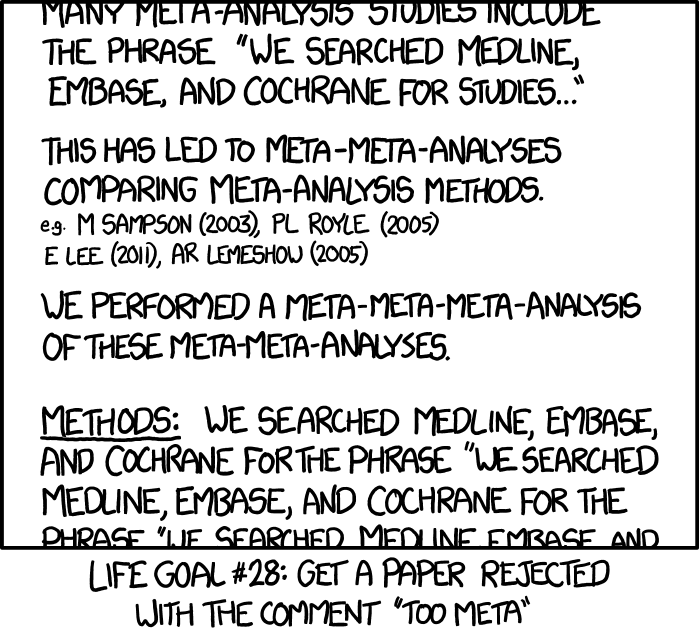
"In the context of systematic reviews, reference management programs facilitate the capture and organization of studies identified through electronic database searching, the identification and elimination of duplicate records from multiple database searches, the transfer of references to Cochrane RevMan and other systematic reviews software, and the accurate citing of references within manuscripts [8,9]. Thus, an author’s decision to use, or not use, this software may impact on the accurate reporting of the number of studies reviewed for inclusion and exclusion in a systematic review." (Lorenzetti & Ghali, 2013)
Alt text joke to comic: ""Life goal #29 is to get enough of them rejected that I can publish a comparative analysis of the rejection letters."
Just a reminder: It is *very* important that you keep careful record of your searches to make sure they can be duplicated, and include them in your SR/MA - this includes what database (and vendor platform) you found them on!. But - keep in mind that searches can't always be duplicated because
These are the content modules WSU subscribes to via JSTOR:
